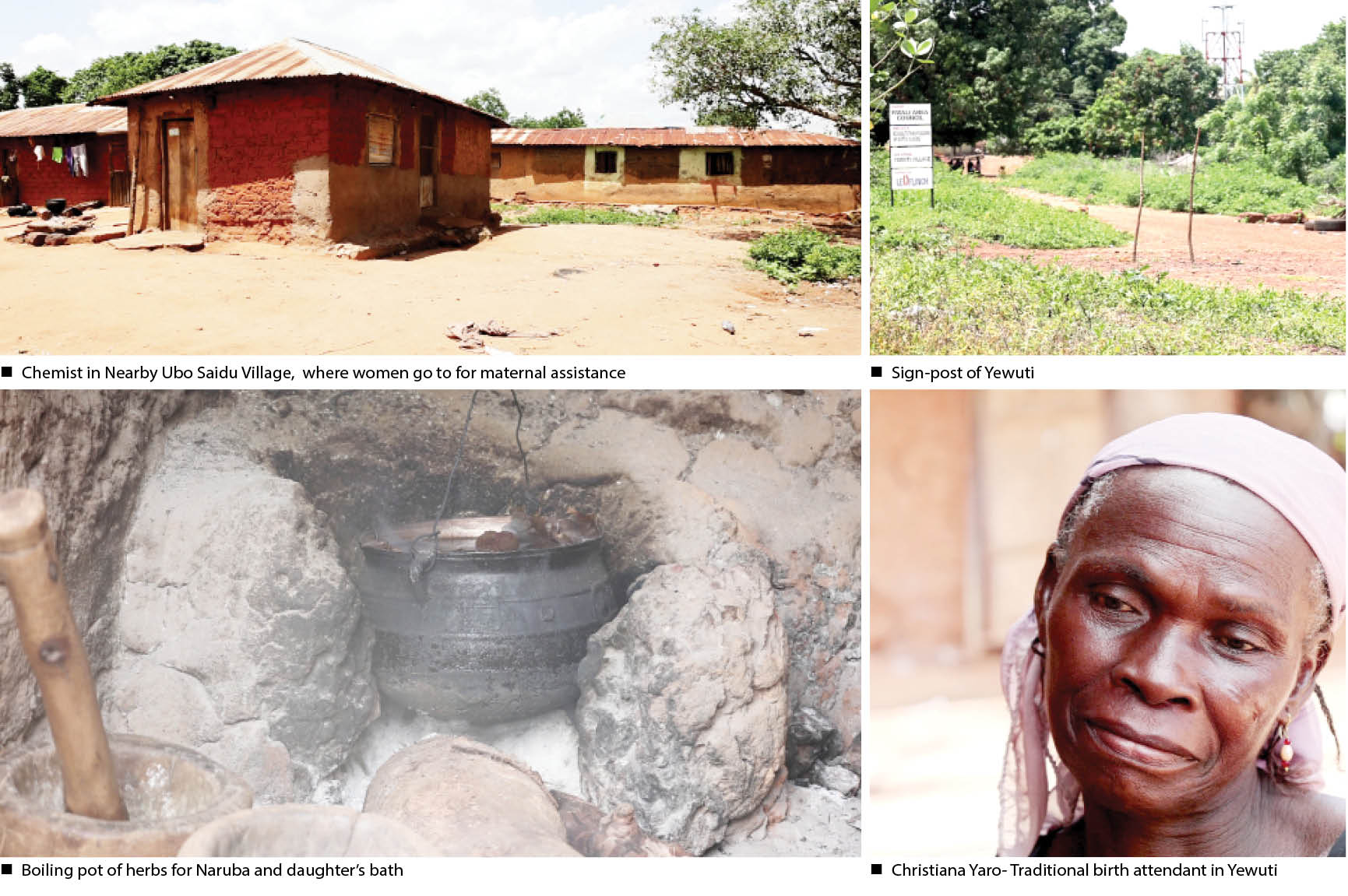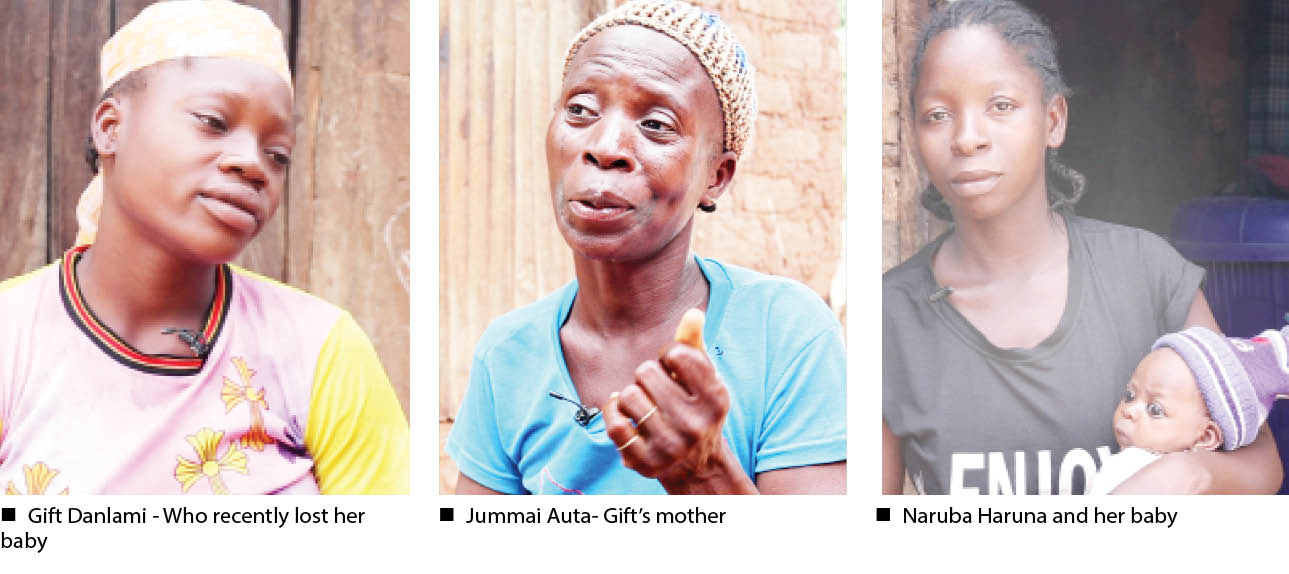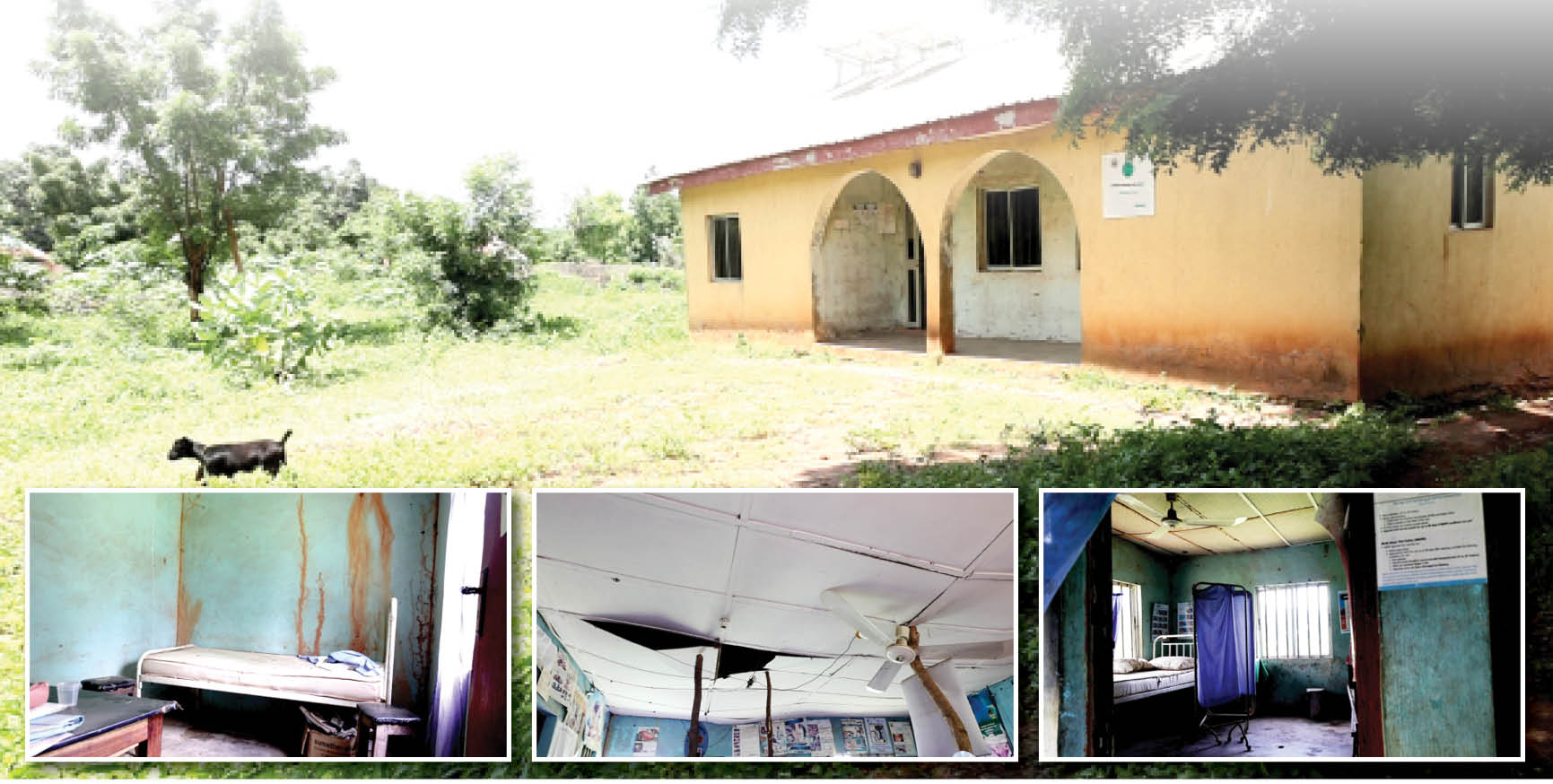How cost, access fuel infant mortality in FCT community
In the shadows of Nigeria’s capital city, far from the grandeur of ultra-modern skylines and a promise for improved pre-natal healthcare services, there lies a starkly contrasting reality, where women navigate the complexities of pregnancy and childbirth with little or no professional help. Yewuti community The sand baked uneven terrain branches off the busy […]

infant mortality
In the shadows of Nigeria’s capital city, far from the grandeur of ultra-modern skylines and a promise for improved pre-natal healthcare services, there lies a starkly contrasting reality, where women navigate the complexities of pregnancy and childbirth with little or no professional help.
Yewuti community
The sand baked uneven terrain branches off the busy Lokoja- Abuja highway. Here, motorbike is the major mode of transportation. Tall trees, lush vegetations and newly cultivated farmlands lay on both sides of this less traveled path.
After a bumpy ride of about five kilometers, the landscape transforms, revealing a sparsely urbane community typified by clusters of unfenced mud houses and scenery, mirroring the simplicity of life here.
Yewuti is a community located in Wako ward, Kwali area council of Abuja. This small community, inhabited by Gbagyi, Gana-Gana and Bassa people, who are predominantly farmers, is said to have a small population comprising children, youth and old people.
- Dundaye: Inside Sokoto community where residents rely on onions for livelihood
- Inside Sani Abacha stadium, a haven for forbidden drugs in Kano

Infant mortality
One story resonates with almost every household in this community, the loss of one or more infants at birth.
Eighteen-year old Gift Danlami is still recovering from a near-death experience she had a few weeks ago.
In an interview with our reporter, she explained how her baby prematurely came out with the leg first after her birth water broke on the farm.
While in pains, six months pregnant Gift and her mother Laraba Auta, abruptly ended their work on the farm that morning and trekked back home.
Still in hope that the pain would stop and she would carry her pregnancy to term, she visited their open roofed bathroom to ease herself. But Gift said she immediately noticed the leg of her baby dangling.
“From there my mom had to look for a motorcyclist to rush me to the pharmacy at Ubo Saidu (a nearby village). But we did not meet anyone there. So, my mother asked me to lay under a tree outside the pharmacy. She then tried to assist me until I pushed the baby out. But the baby was dead at the time,” she said.
Laraba, Gift’s middle-aged mother said, “At the time the baby’s hand and leg were out, my daughter had become very weak and was in severe pain”.
Though, she is not a trained midwife, the fear of losing her daughter at the time, fuelled her persistence to get the baby out.
Naruba Haruna is the mother of two months old Shekwoyemilo. While breast-feeding her daughter at the entrance of her hut, Naruba recounts the painful experiences of previously losing five babies, each after birth.
“This girl is not my first daughter, but she is the only one I have left, as I kept losing my children after birth. I lost the first, then the second after birth too, until I lost five children in total,” she said.
Prior to Shekwoyemilo’s birth, Naruba said she had no hospital contact and even after delivery, she has yet to visit any health facility for vaccinations and other post-natal care.
Though, she associated the death of her five babies to ill luck, a 2024 World Health Organisation (WHO) report on newborn mortality, states that children who die within the first 28 days of birth suffer from conditions and diseases associated with lack of quality care at birth or skilled care and treatment immediately after birth and in the first days of life.

Maternal mortality
One of the expectant mothers, who was scheduled to speak with our reporter, died before the meeting. Though her husband declined comments on the cause of his wife’s death, neighbors linked her demise to complications at childbirth. They said even after she was rushed to a hospital outside the community, both mother and child could not survive. Weekly Trust gathered that she did not register for antenatal care throughout her pregnancy.
According to a 2023 United Nations report on Trends in Maternal Mortality, nearly 28.5 per cent of global maternal deaths occur in Nigeria. This implies that a woman in Nigeria faces a one in 19 lifetime risk of dying during pregnancy, childbirth, or after birth. Meanwhile, in most developed countries, the lifetime risk is placed at one in 4900.
Eccentric maternity
Most women in Yewuti pride themselves in giving birth at home and with little or no professional help.
Jummai, who said going to the hospital for delivery is a display of weakness and fear on the part of younger women, added that out of her nine children, only two were given birth to in a hospital.
Naruba also spoke of having all her six deliveries alone in her room, and that she only sent for the traditional midwife afterwards, to cut the umbilical cord and bath the babies.
Blessing Shokwailo, 28, also gave birth to her four children at home.
In Yewuti community, traditional birth attendants are mostly older women whose years of experience count in the process of child birth. Christiana Yaro is one of such birth attendants, who has lost count of the number of births she assisted.
Though, she has no formal education to show for her skill, her track record of successful deliveries makes her a trusted alternative.
Besides giving birth at home, Yewuti women rely on herbs for infants and nursing mothers.
While most of the women start taking the herbs at the initial stages of their pregnancies to relieve symptoms, after birth they use boiled herbs to bath mother and child to avoid ailments.
Note that the WHO in its guidelines for self-medication, especially in the context of pregnant women defined self-medication as the selection and use of medicines by individuals to treat self-recognised illnesses or symptoms. These include the use of over-the-counter drugs, medicinal plants, herbal products and vitamins without a medical or dental prescription.
It also states that self-medication poses specific risks due to the potential for harm to both the mother and the developing foetus. However, medications that are otherwise safe can have different effects during pregnancy.
Besides the herbs, Naruba reveals a rope like neck piece around her two-month old daughter’s neck, saying it is “medicine to protect her from falling sick”.
In the case of 18-year old Gift, who was still bleeding at the time, hot water drinks and baths were her ‘drugs’ for recovery.
Yewuti primary health center
The Primary Health Facility in Yewuti is one building that visibly stands out, though not in the provision of services, as residents complained that the staff are hardly available to attend to delivery cases, especially at night. They also said high cost of antenatal care and lack of medicines in the facility had overtime discouraged them from considering it as an option.
A visit to the facility confirmed some of these claims as our reporter met only a cleaner who doubles as attendant.
Answering to some of the allegations via telephone, the health worker in charge of the PHC, John Kuram, said though he does not live in the village, he tries his best to attend to the health needs of the women and children in Yewuti, when contacted after office hours.
About the cost of antenatal services that is said to hinder access, John added, “They only pay little incentives, maybe N100 for the Antenatal Care (ANC) card and if there is a need for them to get drugs and delivery kits which the facility cannot afford, we write the items out for them to be able to get it. That is because the facility is not equipped with drugs, especially ANC and Artemisinin-based combination therapy (ACT) drugs,” he said.
In response to ANC services in the facility, the health worker debunked the claim that most women in the community do not visit the facility for antenatal care, saying that they had an average of 55 women registered for ANC from January to date. On high infant mortality rate and home deliveries in the community, Kuram attributed the development to ignorance on the part of the women, adding that he had commenced house-to-house visits to enlighten the women of impending danger.
“They come to the hospital for delivery, but you know most of the deliveries happen at night, coupled with the situation of the country, they sometimes seek help from their neighbours,” he said.
Routine vaccines for children, according to Kuram, have been successful, as he said the federal government made that available.
“As a health worker, there is need for more manpower. I also need items like mosquito nets, Dettol, Jik, ACT drugs and even digital apparatus. When all these items are available in the facility, more women will patronise the centre,” he added.
While admitting to the challenges of health care that women in the community face, Yunusa Muhammed, the village head of Yewuti community, said the lack of drugs in the facility is a major problem.
He also noted that prevailing cases of kidnapping in the community prevent health workers from attending to emergency cases, especially at night. He added that the distance between the main road and the health facility was also an issue.
Efforts to get Dr. Yakubu Muhammed, Executive Secretary, Primary Healthcare Development Agency, to speak on the situation at the centre in the community was unsuccessful. When our reporter reached out to him via phone, he asked her to call back. Subsequent calls put through to him were unsuccessful.
